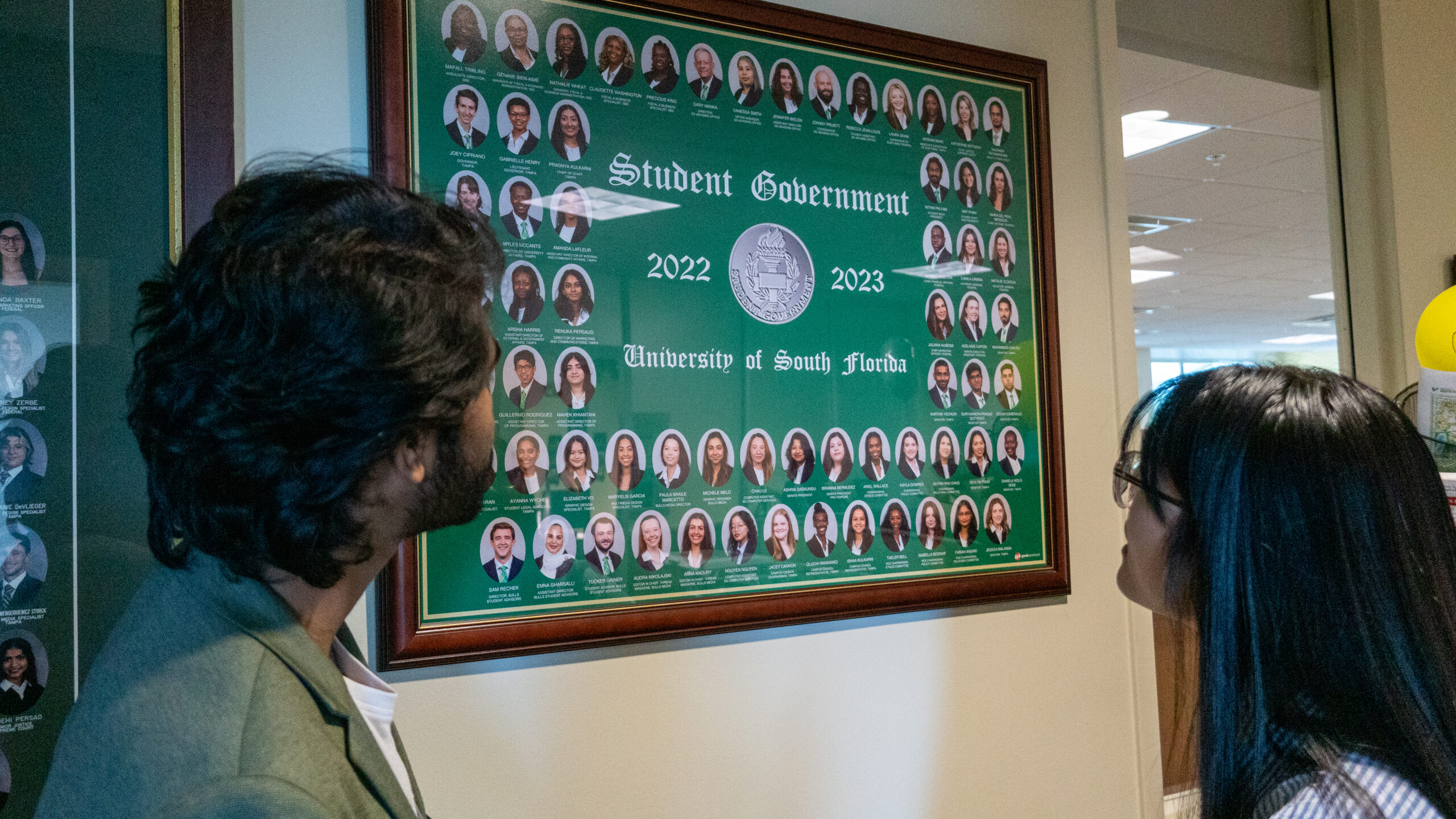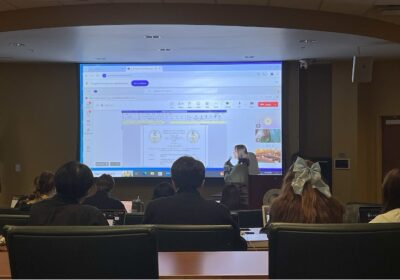Palyam, Pham reflect on presidential term goals, unfulfilled plans

As Student Government (SG) president Nithin Palyam and vice president Amy Pham approach the end of their term, Pham said the cabinet’s most important goal of representing international students has been successfully accomplished.
“I think it is really hard to see people who represent you, look like you and have the same experiences as you,” Pham said. “Nithin and I wanted to make sure to bring people in that represent what USF actually looks like.”
While the state of Florida has experienced several pieces of legislation this term, like House Bill 999, Pham said students have reached out to SG to question how their platform could be promoted by SG, and have collaborated with the USF Senate, to ensure their concerns are addressed.
House Bill 999, if passed in the Senate, would change core and general requirements for Florida universities majors and minors pertaining to Critical Race Theory (CRT) and diversity, equity and inclusion (DEI), according to the Florida Senate website.
“Regarding the specific attacks on DEI, I would say we have done a really good job collaborating with the (SG) legislative branch to ensure that we give all students an opportunity to have their voices heard,” Pham said.
Palyam said that he will urge the next president to consider carrying the international student’s representation by having a diverse cabinet.
“It’s to their discretion,” Palyam said. “If they want to focus on something else, that is completely fine, as long as they don’t completely forget about it.”
Their campaign acronym H.E.R.D., which stands for Health, Empowerment, Resources and Development, prompted Palyam and Pham to focus on highlighting and improving already existing resources in a more efficient way to students.
The OneUSF transportation project, which would provide shuttle transportation in between all USF campuses, was one big project that was halted due to logistics and the overall sustainability of the project. Palyam said the number one barrier is quantifying how many students would use this resource.
“If they think that a service is needed for students, I don’t think the university is going to hesitate in putting money into it,” Palyam said. “But once we get a stadium, I think there will be more reasons for the administration to build that connection between campuses.”
The pair invested a lot of time into reframing their social media strategies to create awareness of resources available to international students, according to Palyam. He said he credits their broader reach in social media to his Chief Marketing Officer Gustavo Storck.
“We had a lot of change in student engagement and relatability,” Palyam said. “In previous years, we used to post with just information on events, and now we have people who are passionate about it explain to students what is going on.”
As part of their sustainability efforts and journey to improve the communication between SG and the student body, Palyam and Pham also ensured that informational posts on Coca-Cola-sponsored recycling machines told students that it could recycle all products, not only Coke products.
A prominent initiative was highlighting and improving accessibility to the food pantry, Feed-A-Bull, to students who are facing food insecurity on campus. Although the pair raised more awareness to the availability of food through the SG social media platforms, Pham said she hopes the next cabinet remembers to keep providing the pantry with donations and support.
Palyam said that due to food insecurity being a stigma, students might be reluctant to ask for help, as he experienced it first hand.
“During the pandemic, I had no way of finding a job on campus as an international student, my hands were tied,” Palyam said. “There was little my parents could do back home to support me through this, so I heavily relied on the food pantry.”
The pair’s Health pillar included making improvements in the accessibility of mental health resources for USF students. To create a sense of comfort, Pham said they were very intentional on which organizations and professionals they contacted to be available during panels, such as the one hosted on Black mental health.
“We have to stay creative in our approach. There are a lot of things to take into consideration when throwing an event like this,” Pham said. “Even if you are talking about something very difficult, having someone available from the counseling center to talk to students is important.”
Although both Palyam and Pham said they are proud of the initiatives they accomplished for the student body, Pham said she is relieved to focus on the student version of herself.
“It’s bittersweet,” Pham said. “I am excited to leave. We have done our best and as much as we could have done in a year, and I am excited to see what next year will bring.”
Palyam, a computer science major and a senior, said he wants to focus on the impact he can make in his field of study, but will always remember the experience of being a student leader.
“It will always be a special chapter in my book. If someone told me when I was 12 years old that I would be a student body president at an American university, I would have laughed,” Palyam said.






